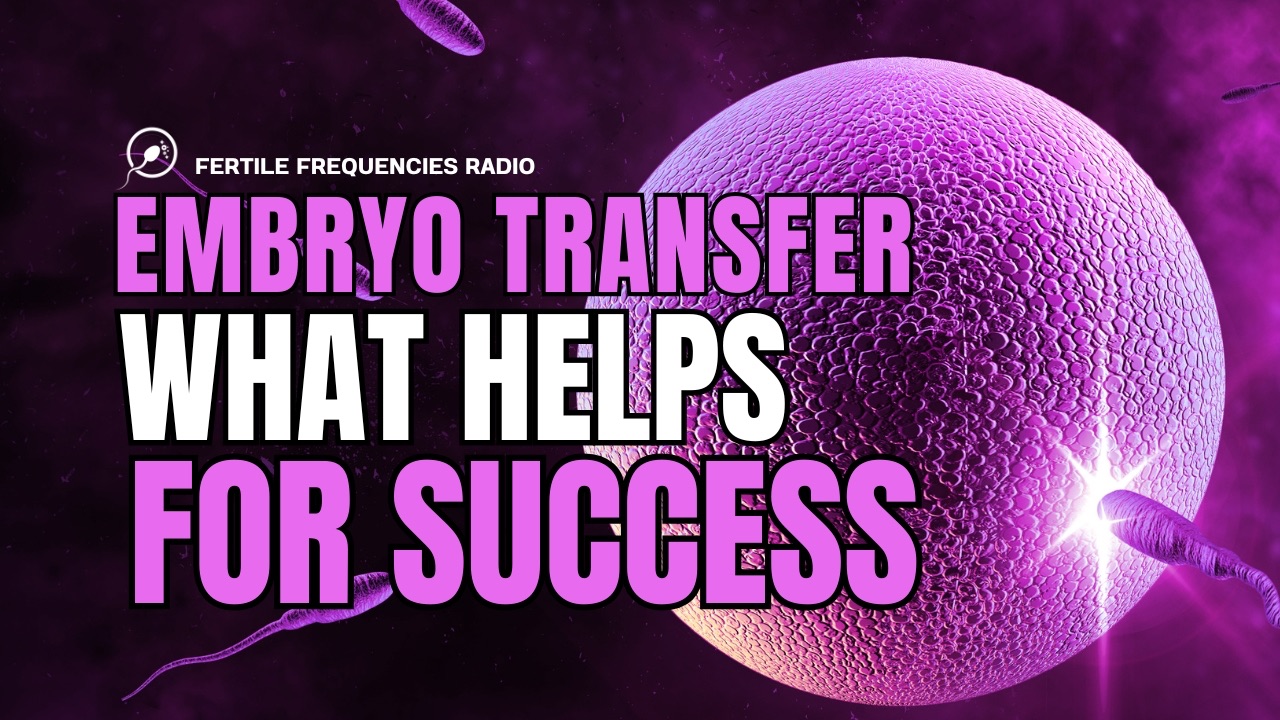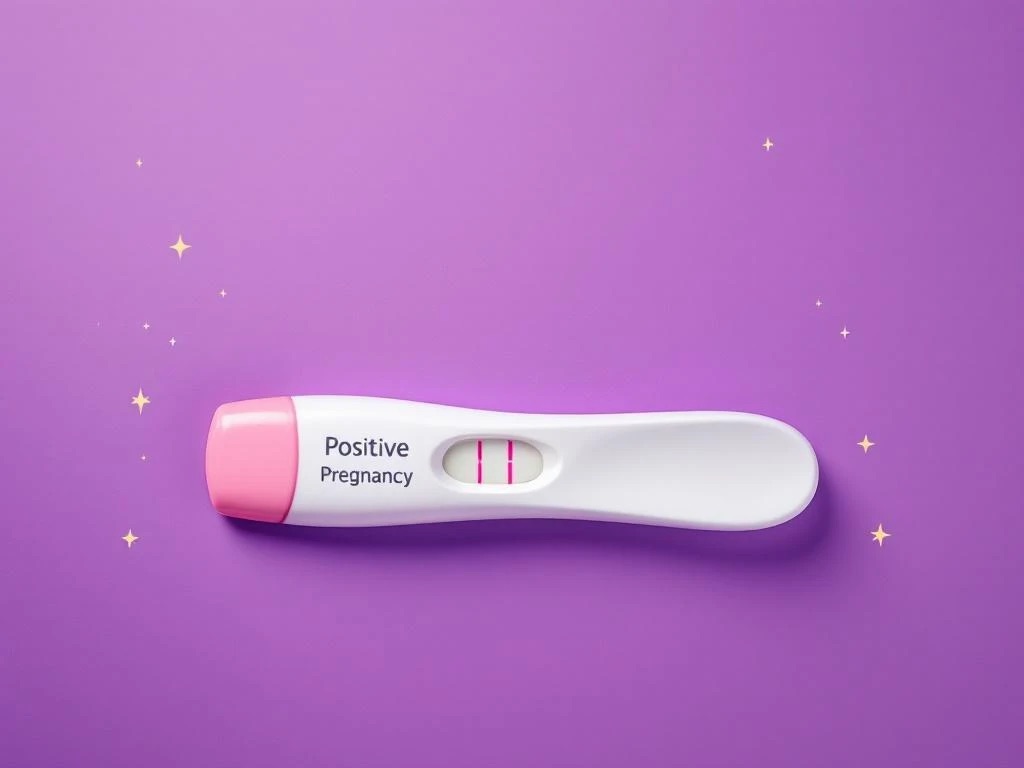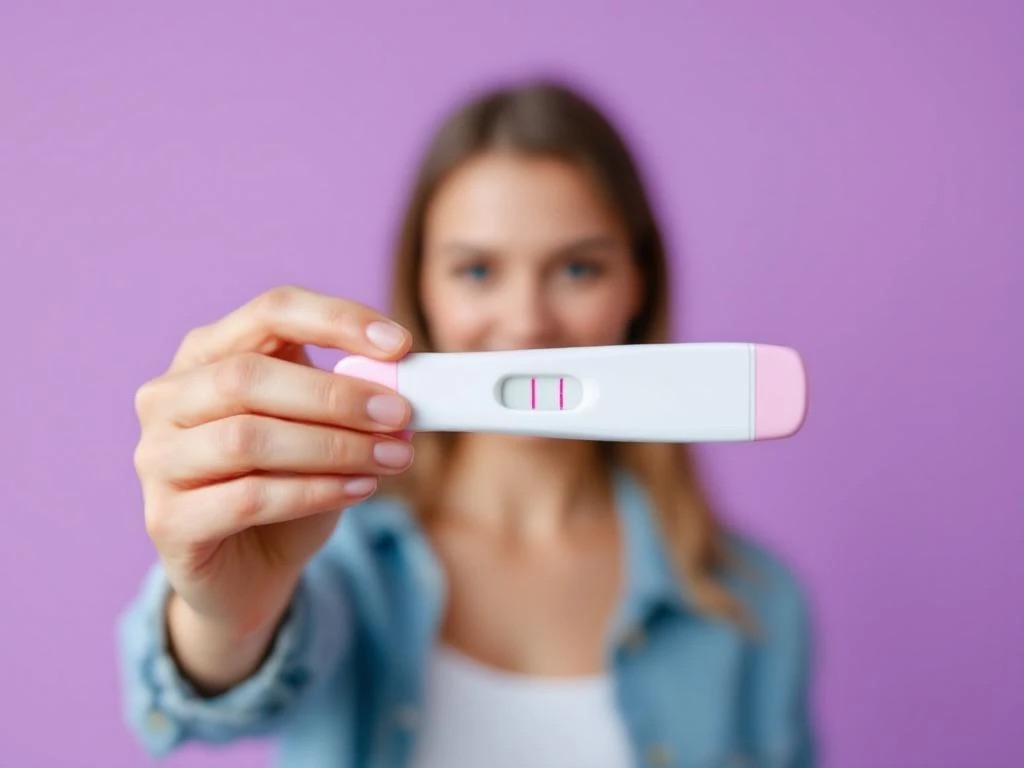Preparing for Embryo Transfer: A Holistic, Evidence-Based Approach
Oct 09, 2025
By Lindsay Goodwin, LAc., MSOM, BS, FABORM, CLC, CHt. | Host of Fertile Frequencies Radio
Embryo transfer day can feel like a runway moment, bright lights, big feelings, so many moving parts. On Fertile Frequencies Radio — Episode 29: IVF Embryo Transfer Success Checklist: Evidence-Based Prep + Spiritual Rituals, Lindsay Goodwin, fertility expert and spirit baby medium, shares a straightforward, clinic-friendly approach to reduce stress and create a receptive environment: steady sleep, protein-forward meals, gentle circulation, precise medication timing, and compassionate boundaries. Listen to the episode and grab your IVF embryo transfer prep checklist below.
Why Preparation Matters for Transfer Week
When your nervous system reads safety, your body holds rhythm more easily. That’s the goal of transfer prep:
- Clarity lowers cortisol: a short, doable plan reduces decision fatigue.
- Sleep and circadian rhythm support hormone stability.
- Gentle movement favors blood flow without over-stressing the system.
- Protein-forward meals help stabilize blood sugar during a sensitive window.
Episode 29 walks through these principles in plain language and pairs them with simple, compassionate mindset cues.
Evidence-Based Prep: Your 48–72 Hour Focus
- Lock the timing: Set two alarms for every medication; have a partner/friend as backup.
- Protect sleep: Establish a consistent bedtime/wake time for 3–5 nights before transfer, and dim evening light to support natural melatonin.
- Eat steady, simple meals: Lead with protein, add colorful vegetables and healthy fats; avoid heavy/greasy or brand-new foods.
- Hydrate and mineralize: Drink water steadily through the day; follow your clinic’s guidance on fluids the morning of transfer.
- Favor circulation, not strain: Walks and mobility are great; skip max-effort training, hot tubs, and saunas.
- Create calm boundaries: By limiting draining conversations, doom-scrolling, and new commitments this week.
All of these are aligned with the practical guidance summarized in the episode’s notes.

Day-Of Transfer: Be Warm, Be Early, Be Precise
- Wear comfortable layers and bring your “transfer pouch” (meds, schedule, ID, snacks, water, cozy socks).
- Follow clinic instructions on bladder fill, food, and activity.
- Breathe slowly (try 4-count in, 6-count out for 1 minute) to settle your system.
- After transfer, honor your clinic’s instructions on movement and pelvic rest.
Partner Support That Actually Helps
Assign two roles so help is tangible:
- Timekeeper: tracks alarms, doses, and refills.
- Calm-Keeper: drives, handles logistics, provides water/snacks/quiet.
Short check-ins (“Right now I feel ___.” “What would help tonight?”) guide support without overwhelm.
Nutrition Cliff Notes for Transfer Week
- Protein at each meal (+ fiber + healthy fat) to steady glucose.
- Whole-food basics over complicated recipes.
- Moderate caffeine per clinic guidance.
- Hydration: keep a bottle nearby; sip consistently.
These themes are echoed throughout the episode’s summary and key takeaways.
Gentle Movement & Therapies
- Yes: walks, light stretching, breathwork.
- Maybe: acupuncture for relaxation if approved by your clinic.
- Not now: strenuous exercise, overheating (sauna, hot yoga, hot tubs).
The Mind–Body Connection
Episode 29 emphasizes nervous-system safety and compassionate boundaries—not rigid routines or perfection. Choose one non-negotiable per day (sleep window, short walk, or slow breathing) and let that be enough.
Listen & Download
- 🎧 Listen to Episode 29: IVF Embryo Transfer Success Checklist: Evidence-Based Prep + Spiritual Rituals (published October 8, 2025).
- 📥 Get Your IVF Embryo Transfer Success Checklist now! The episode page links to the download on FertileFrequencies.com.
FAQ: Embryo Transfer Prep (Q&A)
Q: Does this replace my clinic’s instructions?
A: No. This complements your protocol with simple lifestyle and timing cues. Always follow your clinic first.
Q: Can I do acupuncture around transfer?
A: Many people use it for relaxation when cleared by their clinic. The relaxation response is the goal, not a guarantee.
Q: What type of exercise is best?
A: Gentle circulation—walks and mobility. Avoid strenuous training and overheating unless your provider says otherwise.
Q: What should I eat?
A: Keep meals protein-forward and straightforward with vegetables and healthy fats; hydrate consistently.
Q: How do I manage nerves on transfer day?
A: Arrive early, bring comfort items, breathe slowly, and assign partner roles (timekeeper + calm-keeper).
Disclaimer
This article is educational and support-focused. It does not diagnose, treat, or replace medical care. Always follow your clinic’s instructions and consult your licensed provider with questions or concerning symptoms. The podcast page reiterates that the content is for educational purposes only.







